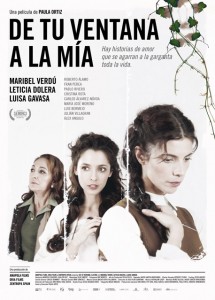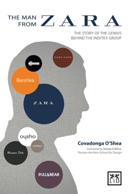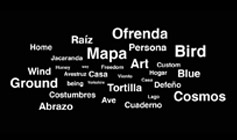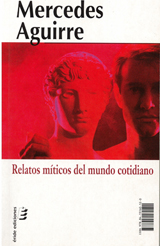Blog del Instituto Cervantes de Dublín
Torre Martello
Audiolibro de la semana / Audiobook of the week: Vivir del viento
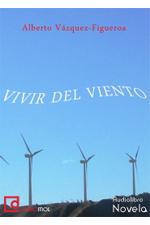 Tras Tuareg y Los ojos del tuareg, vuelve Alberto Vázquez -Figueroa, uno de los autores españoles más leídos en España y en el mundo, a nuestra lista de audiolibros de la semana.
Tras Tuareg y Los ojos del tuareg, vuelve Alberto Vázquez -Figueroa, uno de los autores españoles más leídos en España y en el mundo, a nuestra lista de audiolibros de la semana.
Vivir del viento es una novela de intriga en la que se destapan los sucios negocios que se esconden detrás de la energía limpia del viento. Poderosos grupos empresariales aprovechan los inmensos parques eólicos que pueblan las llanuras de Estados Unidos para facturar grandes sumas por la producción de una electricidad que en realidad no llega a aprovecharse. Es por eso por lo que un grupo de personajes vinculados al mundo del cine deciden realizar una película de denuncia sobre el tema.
Seguro que te va a gustar. Para descargarla, solo necesitas tener a mano tu número de usuario y tu contraseña.
After Tuareg and Los ojos del Tuareg, Alberto Vázquez-Figueroa, one of the most widely read Spanish authors in Spain and worldwide, comes back to our audiobooks of the week list.
Vivir del viento is a thriller in which the dirty business hidden behind the clean energy of the wind are uncovered.
Powerful business groups use the huge wind farms that cover the plains of the United States to bill for producing large amounts of electricity that does not really get used. That’s why a group of people linked to the film industry decide to make a film on this subject.
We are sure you will enjoy this audiobook. You just need your library card with your username and your password.
VI Congreso Internacional de la Lengua Española / 6th International Congress of the Spanish Language
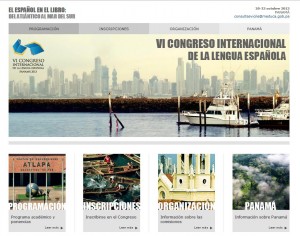 El próximo domingo 20 de octubre da comienzo el VI Congreso Internacional de la Lengua Española que se celebrará en Ciudad de Panamá hasta el miércoles día 23. Este congreso, organizado por el Gobierno de Panamá, la Real Academia Española, con la Asociación de Academias de la Lengua Española, y el Instituto Cervantes, tiene como objetivo promover la reflexión y el análisis sobre el pasado, el presente y el futuro del libro escrito y publicado en lengua española.
El próximo domingo 20 de octubre da comienzo el VI Congreso Internacional de la Lengua Española que se celebrará en Ciudad de Panamá hasta el miércoles día 23. Este congreso, organizado por el Gobierno de Panamá, la Real Academia Española, con la Asociación de Academias de la Lengua Española, y el Instituto Cervantes, tiene como objetivo promover la reflexión y el análisis sobre el pasado, el presente y el futuro del libro escrito y publicado en lengua española.
Tal y como se puede leer en su página electrónica, «este congreso continúa la tarea de los congresos de Zacatecas (1997), Valladolid (2001), Rosario (2004), Cartagena de Indias (2007) y Valparaíso (2010), y forma parte del programa de conmemoraciones del Quinto Centenario del Descubrimiento del Océano Pacífico».
En Panamá se encontrarán más de 200 expertos y creadores, entre ellos Mario Vargas Llosa, Sergio Ramírez, William Ospina, Antonio Skármeta, Laura Restrepo, Héctor Abad Faciolince, Juan Villoro, Alonso Cueto, Abel Posse y Rosa María Britton, y los debates girarán en torno al lema «El español en el libro: del Atlántico al Mar del Sur».
Toda la información relacionada con esta sexta edición, su intenso programa, así como información acerca del congreso virtual que se celebrará de forma paralela y complementaria al congreso presencial, se puede encontrar en las diferentes secciones de su página oficial. Merece la pena visitarla, del mismo modo que merece la pena visitar el nuevo portal de la Real Academia Española, que será presentado dentro del propio congreso. Un portal con contenidos totalmente renovados y con una mayor oferta de recursos para los hispanohablantes de todo el mundo.
El Instituto Cervantes, por su parte, presentará algunos de sus proyectos e iniciativas más recientes, como las relacionadas con la formación de profesores y con su presencia en los Estados Unidos.
Next Sunday, October 20th, starts the 6th International Congress of the Spanish Language to be held in Panama City until Wednesday 23rd. This conference , organized by the Government of Panama , the Real Academia Española, with the Asociación de Academias de la Lengua Española, and the Instituto Cervantes, aims to promote reflection and analysis on the past, present and future of the book written and published in Spanish .
As you can read on its website, “this conference continues the work of the congresses of Zacatecas (1997 ), Valladolid (2001 ) , Rosario (2004 ), Cartagena de Indias (2007 ) and Valparaiso (2010 ), and is part of the commemorations of the fifth anniversary of the discovery of the Pacific Ocean . “
In Panama, more than 200 experts and creators will meet , including Mario Vargas Llosa , Sergio Ramírez , William Ospina , Antonio Skármeta , Laura Restrepo , Hector Abad Faciolince , Juan Villoro , Alonso Cueto , Abel Posse and Rosa Maria Britton , and discussions will focus on the theme “The Spanish in the book : from the Atlantic Ocean to the South sea .”
All information related to this sixth edition, its intense program , and information about the virtual conference to be held in parallel and complementary to presential Congress, can be found in the different sections of its official website . Well worth a visit , just as worth visiting the new website of the Real Academia Española, which will be presented within the Congress, with a fully renovated content and a greater supply of resources for Spanish speakers worldwide.
The Cervantes Institute , meanwhile, will present some of its most recent projects and initiatives , including those related to teachers training and its presence in the United States.
Audiobook of the Week | Audiolibro de la semana: Cuentos infantiles clásicos
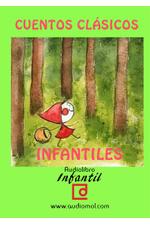 This week we bring you the audiobook Children’s Classic Tales. These stories are not only for children. For the adults who want to bring their childhood memories back, this is the perfect book. To download this audiobook you only need your library card and click here.
This week we bring you the audiobook Children’s Classic Tales. These stories are not only for children. For the adults who want to bring their childhood memories back, this is the perfect book. To download this audiobook you only need your library card and click here.
This audiobook contains 20 classic children’s stories. The titles included are: Little Red Riding Hood, The Ugly Duckling, Hansel and Gretel, Bambi, Tom Thumb, The Spinner, The Three Little Pigs, The Hamelin Piper, Peter Pan, Puss in Boots, Bluebeard, The Wild Swans, Sinbad the Sailor, The Steadfast Tin Soldier, The Brave Little Tailor, Snow White, The Elf and the Mouse, John without Fear, Sleeping Beauty and Pinocchio.
Esta semana te traemos el audiolibro Cuentos infantiles clásicos. En estas historias los niños son los protagonistas pero también es el libro perfecto para los adultos que quieran rememorar sus recuerdos de infancia. La descarga es muy simple, solo necesitas la tarjeta de la biblioteca y pulsar aquí.
Este audiolibro recoge 20 cuentos infantiles clásicos, para que los disfruten los más pequeños. Los títulos que se incluyen son: Caperucita roja, El patito feo, Hansel y Gretel, Bambi, Pulgarcito, La hilandera, Los tres cerditos, El flautista de Hamelin, Peter Pan, El gato con botas, Barba azul, Los cisnes salvajes, Simbad el marino, El soldadito de plomo, El sastrecillo valiente, Blancanieves, El duende y el ratón, Juan sin miedo, La bella durmiente y Pinocho.
Encuentros en el Cervantes with / con John Banville
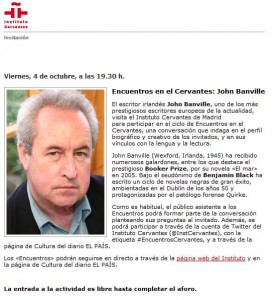 The great Irish writer John Banville opens our Isla Literature Festival on 18th October. On this occasion, he visits on Friday, October 4th, the Instituto Cervantes in Madrid and participates in the cycle of “Encuentros en el Cervantes”, a conversation that will inquire into his biography and his literary work.
The great Irish writer John Banville opens our Isla Literature Festival on 18th October. On this occasion, he visits on Friday, October 4th, the Instituto Cervantes in Madrid and participates in the cycle of “Encuentros en el Cervantes”, a conversation that will inquire into his biography and his literary work.
John Banville (Wexford, Ireland, 1945) has received numerous awards, like the prestigious Booker Prize for his novel The Sea in 2005. Under the pseudonym Benjamin Black, he has written a series of highly successful crime novels.
As usual, the public attending the meetings may be part of the conversation. You can participate sending your questions to @InstCervantes with the hashtag #EncuentrosCervantes. You can send them as well through the page of Culture of the newspaper El País.
The “Encuentros” may be followed live through the website of the Instituto Cervantes and El País.
El gran escritor irlandés John Banville abrirá nuestro Festival Isla de Literatura el próximo 18 de octubre. Con este motivo, visitará el próximo viernes, día 4 de octubre, el Instituto Cervantes de Madrid y participará en el ciclo de Encuentros en el Cervantes, una conversación que indagará en su perfil biográfico y creativo.
John Banville (Wexford, Irlanda, 1945) ha recibido numerosos galardones, entre los que destaca el prestigioso Booker Prize, por su novela El mar en 2005. Bajo el seudónimo de Benjamin Black ha escrito un ciclo de novelas negras de gran éxito, ambientadas en el Dublín de los años 50 y protagonizadas por el patólogo forense Quirke.
Como es habitual, el público asistente a los Encuentros podrá formar parte de la conversación planteando sus preguntas al invitado. Además, se podrá participar a través de la cuenta de Twitter del Instituto Cervantes (@InstCervantes), con la etiqueta #EncuentrosCervantes, y a través de la página de Cultura del diario El País.
Los «Encuentros» podrán seguirse en directo a través de la página web del Instituto y en la página de Cultura del diario El País.
Culture Night 2013 | Noche de la cultura 2013
 Welcome to Instituto Cervantes at Dublin Culture Night 2013! We have several surprises waiting for all of you who visit our cultural centre during this special cultural night. You cannot miss this great event on September 20th from 6pm to 10pm.
Welcome to Instituto Cervantes at Dublin Culture Night 2013! We have several surprises waiting for all of you who visit our cultural centre during this special cultural night. You cannot miss this great event on September 20th from 6pm to 10pm.
Join us for the art exhibition In a faceless world by renowned Spanish artist Amaya Bozal. There will also be a Latin American handicraft market, an ex-library and second-hand book sale, music andfood to tickle your cultural taste buds.
¡Bienvenidos al Instituto Cervantes de Dublín en la Noche Cultural 2013! Este año tenemos varias sorpresas para celebrar con todos los visitantes esta única y muy especial noche cultural. No te pierdas este fantástico evento el día 20 desde las 18:00 de la tarde hasta las 22:00 de la noche.
Desde las 6 de la tarde, ven a visitar nuestraexposición de pinturas En un mundo sin rostro, de la reconocida artista española Amaya Bozal. En nuestro Café Literario podrás disfrutar de una feria de artesanía latinoamericana y música, además de premiar a tu paladar con degustación de comida típica española y latina.
También podrás llevarte alguna buena lectura en laventa de libros organizada en nuestra biblioteca.
Film screening | Cine: Una hora más en Canarias
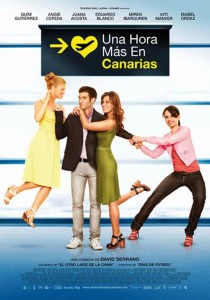
Una hora más en Canarias is the film that we bring you tomorrow at 6pm in Café Literario. Last month due to technical problems we had to interrupt the screening of this wonderful film. Now you have the chance to finally see it!
Claudia is an attractive thirty-five year old woman that has a goodlooking husband who worships her, a handsome son whom she adores and a lover who is even better looking and whom she adores even more. Life could not get any better. But Pablo, her lover, has decided that he has had enough of being no more than that and has left her for another woman. The heroine, who doesn’t take NO for an answer, is not prepared to let him slip through her fingers. With the help of her sister Mónica, and a spot of emotional and financial blackmail, she arranges what would seem to be a simple plan to get him back. But things do not go as planned and Pablo finds himself in the middle of three manipulative and strong women who will do whatever it takes to get what they want!
Una hora más en Canarias es la película que te traemos mañana a las 18:00 al Café Literario. El pasado mes de junio debido a problemas técnicos, nos vimos obligados a interrumpir la proyección de esta película. ¡Ahora tienes la oportunidad de verla finalmente!
Claudia, una mujer atractiva de treinta y cinco años, tiene un bonito café en el centro de Madrid, un marido guapo al que adora, un hijo guapo al que también adora y un amante aún más guapo al que adora aún más. Su vida no puede ser más perfecta, o eso parece, porque Pablo, su amante, ha decidido que está harto de ser solamente eso: su amante, y la ha dejado por Elena, una joven simpática, tierna, cariñosa… y con cierta propensión a la violencia cuando le quieren quitar al novio. Claudia, que no soporta perder ni a los chinos, no está dispuesta a dejarle escapar, así que con la ayuda de su hermana Mónica, y de un poco de chantaje económico y emocional, organiza lo que a primera vista parece un sencillo plan para recuperar a Pablo: llevárselo lejos de su novia, para poder seducirle más fácilmente. Aunque puede que las cosas se le compliquen un poco durante el proceso.
Audiobook of the Week | Audiolibro de la semana: La estrella peregrina
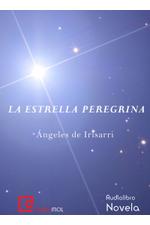 La estrella peregrina by writer Ángeles de Irisarri is our audiobook of the week. Don’t you know how to use our audiobooks service yet? Well, it’s as simple as taking your library card and click on the link.
La estrella peregrina by writer Ángeles de Irisarri is our audiobook of the week. Don’t you know how to use our audiobooks service yet? Well, it’s as simple as taking your library card and click on the link.
A Countess of Brittany, after the death of her husband in the first millennium, begins a pilgrimage to Compostela to postrate herself before the apostle James and ask him to make his daughter, who is seven years and is dwarf, grow. Evil tongues say that, despite having received exorcism, she’s still possessed.
She starts the journey with an entourage of two hundred servers, but during many miles she runs into quirky characters, while many mishaps and adventures happen and she even lives the “terrors” of the Thousand Year in Finisterre in Galicia and the theft of a precious Blessed in the city of León.
La estrella peregrina de la escritora Ángeles de Irisarri es nuestro audiolibro de la semana. ¿Todavía no sabes como usar nuestro servicio de audiolibros? Pues es muy simple, coges tu carnet de la biblioteca y pulsas en el enlace.
Una condesa de la Bretaña francesa, tras el fallecimiento de su marido en el Año Mil, inicia una peregrinación a Compostela para postrarse ante el apóstol Santiago y que éste haga crecer a una hija que tiene de siete años y que es enana, de la que las malas lenguas sostienen que, pese a haber recibido exorcismo, continúa endemoniada.
Sale al camino con un séquito de doscientos servidores, pero a lo largo de tantas y tantas millas se encuentra con personajes estrafalarios, a la par que le suceden multitud de contratiempos y aventuras, e incluso vive los «terrores» del Año Mil en el Finisterre de Galicia y el robo de un precioso Beato en la ciudad de León.
Film screening | Cine: De tu ventana a la mía
The new session of Feminine Space, a film series with a particular focus on women, comes today at 6pm to Café Literario. The film is De tu ventana a la mía by Paula Ortiz.
Violet, Inés and Louise are women of different ages, whose days pass in apparent calmness on the other side of the window. Wheatfields, mountains, and the streets of an old city provide settings in which De tu ventana a la mía recreates these women’s lives, as seen through the light and the beauty of memories.
The film gives us the magical past when it was still possible for a young girl to dream in the woods; it gives us, the distant gaze of a mother in the arid desert and the autumnal memory of a mature woman in a closed house. It tells the tale of women who seem to live in silence, but who have memories that keep secrets, passions, and dreams alive.
La nueva sesión del ciclo Espacio femenino, dedicado al papel de la mujer como creadora, llega hoy a las 18:00 al Café Literario con la proyección de la película De tu ventana a la mía de Paula Ortiz.
Violeta, Inés y Luisa son mujeres de edades diferentes, cuyos días transcurren en aparente placidez, al otro lado de la ventana. Los campos de trigo, el refugio en la montaña y las calles de una vieja ciudad, son los lugares donde De tu ventana a la mía recrea sus vidas, sutilmente tamizadas por la luz y la belleza de los recuerdos.
La película se ambienta en ese pasado mágico donde aún era posible el sueño adolescente en los bosques, la mirada lejana de una madre en la aridez del desierto y el recuerdo otoñal de la madurez en la casa encerrada. Mujeres que parecían vivir en silencio, pero cuyos recuerdos guardaban secretos, pasiones, sueños.
Discussion | Charla: The Camino Experience
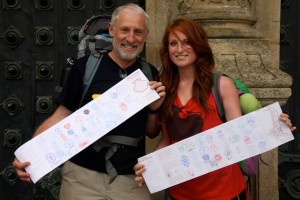 The Celtic Extravanganza: Galicia and El Camino Festival brings us a new event today at 6.30pm in Café Literario. It’s a very special talk about the experience of doing the Camino de Santiago. If you haven´t done it yet, you can get inspired by this talk and start to organize your own trip!
The Celtic Extravanganza: Galicia and El Camino Festival brings us a new event today at 6.30pm in Café Literario. It’s a very special talk about the experience of doing the Camino de Santiago. If you haven´t done it yet, you can get inspired by this talk and start to organize your own trip!
Irish Times journalist Peter Murtagh and his then 18-year-old daughter Natasha walked the Camino Santiago de Compostela from the Pyrenees to Finesterre and wrote a book together, Buen Camino! It tells the story of the people they met along the way and their feelings for each other.
Illustrated talk of 45 minutes with live Galician music by singer Susana Garrido.
El festival La experiencia celta: Galicia y el Camino de Santiago continúa hoy con un nuevo evento a las 18:30 en el Café Literario. Se trata de una charla muy especial sobre la experiencia de recorrer el Camino de Santiago. Si todavía no lo has hecho, puedes inspirarte por esta charla y ¡empezar a organizar tu propio viaje!
El periodista del Irish Times Peter Murtagh y su hija Natasha, que entonces tenía 18 años, recorrieron el Camino de Santiago desde Los Pirineos hasta Finisterre y juntos escribieron el libro Buen Camino!, que narra las historias de las personas que conocieron en el camino y las lazos de amistad que se crearon.
Charla ilustrada de 45 minutos de duración, seguida de música gallega en vivo por la cantante Susana Garrido.
Book launch | Presentación de libro: The Man from Zara
THIS EVENT IS FULLY BOOKED
Writer and entrepeneur Covadonga O’Shea will be today with us for the book launch of her last book: The Man from Zara. The event will be held today at 6.30pm in Café Literario.
Inditex –the group behind Zara, Massimo Dutti, Oysho, Bershka– is today a major force in the world of high street fashion. It recently outranked Gap as the No.1 clothes retailer in the world. In virtually every city in the world, you will see one or more of Inditex’s shops –Zara being the most conspicuous. Yet little is known about this amazing success. This book offers such an insight by telling the story of the genius behind the Inditex Group -Armancio Ortega. Besides being one of the world’s richest men, Ortega is the brains behind a modern-day revolution in textiles and fashion retail. Through unprecedented access to Ortega and his closest aides, the author provides a compelling and unique biography of the man responsible for one of this century’s most extraordinary business successes.
Spanish wine will be served.
ESTE EVENTO TIENE EL AFORO COMPLETO
La escritora y empresaria Covadonga O’Shea estará hoy con nosotros para la presentación de su nuevo libro El hombre que creó Zara. El evento es hoy a las 18:30 en el Café Literario.
¿Un genio empresarial? ¿Un visionario? ¿Un trabajador infatigable y apasionado? Todo esto y mucho más parece ser Amancio Ortega, el hombre que creó el imperio Zara y que por primera vez habla en un libro acerca de su vida y de su empresa.Covadonga O’Shea, periodista y presidenta del Instituto Superior de Empresa y Moda (ISEM), conoce a Ortega desde el año 1990, cuando visitó por primera vez las instalaciones de Inditex en Arteixo. Horas de conversación con el propio Amancio y las personas cercanas a él la han convertido en testigo directo del recorrido de esta empresa, del motor que se esconde detrás de la misma, de cómo viven sus empleados, de los talleres, de cómo se ha forjado la riqueza personal de su fundador, de los proyectos de futuro, de la sencillez de un triunfador. Una obra para descubrir a un personaje que, a pesar de haberse convertido en referencia de las escuelas de negocios del mundo entero y de haber revolucionado el mundo de la moda, sigue pensando que “la autocomplacencia es lo peor si quieres conseguir hacer algoimportante”.
Se servirá vino español.
Cine | Film Screening: Torremolinos 73
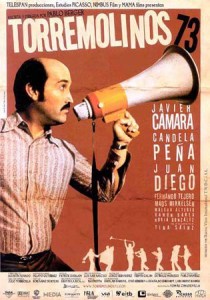 El ciclo de cine 10 años haciendo reir, cantar, bailar… y jugar al fútbol continua mañana martes a las 18:00 en el Café Literario con la proyección de Torremolinos 73.
El ciclo de cine 10 años haciendo reir, cantar, bailar… y jugar al fútbol continua mañana martes a las 18:00 en el Café Literario con la proyección de Torremolinos 73.
Comedia dramática que narra la historia de amor entre Alfredo López, un vendedor de enciclopedias a domicilio y su encantadora y fiel esposa Carmen. Un día cualquiera, el jefe de Alfredo les hace una proposición que cambiará sus vidas para siempre: rodar películas caseras de su vida en pareja para ser distribuidas en Escandinavia.
Una vez superada la sorpresa inicial, ambos deciden que no deben dejar pasar semejante oportunidad, ya que necesitan dinero desesperadamente y Carmen se muere de ganas por tener un hijo.
The 10 years entertaining through laughter, singing, dancing and…playing football film series continues tomorrow, Tuesday 6pm, at Café Literario with the screening of Torremolinos 73.
This is a dramatic comedy which narrates the love story between Alfredo López, a door-to-door encyclopaedia salesman and his charming, faithful wife Carmen. One day Alfredo’s boss suggests something which will change their lives for ever: shoot a home movie of their intimate life to be distributed in Scandinavia. Once they have got over their initial surprise, both decide that they shouldn’t let such a good opportunity slip by as they are desperately in need of cash and Carmen is dying to have a baby.
Conferencia: Don Guillén de Lampart o “El Zorro” en México | William Lamport or “El Zorro” in Mexico.
Esta tarde podrás disfrutar a partir de las 18:30 en el Café Literario de la charla Don Guillén de Lampart o “El Zorro” en México. Contaremos con la inestimable colaboración una vez más de la Embajada de México en Irlanda.
Don Guillén de Lampart (William Lamport o Guillermo Lombardo, 1611-1659), originario de Wexford, Irlanda, fue un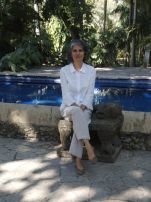 teólogo, matemático, astrólogo, rebelde, pirata, soldado del Imperio español y espía de la Corona en la Nueva España (hoy México). Encarcelado por la Inquisición a partir de 1642, fue en la cárcel defensor de los judíos y denunció a sus captores y verdugos. Logró huir de prisión en 1650 y denunció a la Inquisición en varios puntos centrales de la ciudad de México, incluida la cámara del virrey. Murió en la hoguera, a pesar de que el propio rey de España intentó numerosas veces arrancarlo de las garras del Santo Oficio. Por su osadía y varias leyendas atadas a su nombre, se dice que es él quien da origen a “El Zorro”, emblemática y legendaria figura, inspiradora de mitos, novelas y películas.
teólogo, matemático, astrólogo, rebelde, pirata, soldado del Imperio español y espía de la Corona en la Nueva España (hoy México). Encarcelado por la Inquisición a partir de 1642, fue en la cárcel defensor de los judíos y denunció a sus captores y verdugos. Logró huir de prisión en 1650 y denunció a la Inquisición en varios puntos centrales de la ciudad de México, incluida la cámara del virrey. Murió en la hoguera, a pesar de que el propio rey de España intentó numerosas veces arrancarlo de las garras del Santo Oficio. Por su osadía y varias leyendas atadas a su nombre, se dice que es él quien da origen a “El Zorro”, emblemática y legendaria figura, inspiradora de mitos, novelas y películas.
Andrea Martínez Baracs es mexicana, Doctora en Historia por El Colegio de México. Se especializó en etnohistoria virreinal (siglos XVI-XVIII) y escribió siete libros, de manera individual o junto a otros autores, sobre la provincia indígena de Tlaxcala, México, durante esos siglos. Realizó otras obras de historia, como el “Repertorio de Cuernavaca” (Editorial Clío, 2011). Dirige desde noviembre 2008 para Conaculta la Biblioteca Digital Mexicana, la cual publica documentos históricos que se caracterizan por su rareza y unicidad. Su obra, “Don Guillén de Lampart, Hijo de sus Hazañas”, incluye manuscritos originales del propio Lampart, nunca antes publicados, contribuyendo sustancialmente de esta manera a la investigación sobre este personaje histórico.
This evening we offer you an interesting talk: A 17th century Irishman in Mexico, revolutionary and mystic poet: William Lamport or “El Zorro” in Mexico. Once again we have the invaluable support of the Embassy of Mexico in Ireland. We hope to see you at 6.30pm at Café Literario.
Don Guillén de Lampart (William Lamport or Guillermo Lombardo, 1611-1659), originally from Wexford in Ireland, was a theologian, mathematician, astrologist, rebel, pirate, soldier of the Spanish Empire and a spy for the Crown of the New Spain (Mexico today). Imprisoned by the Inquisition in 1642, while in jail he was a defender of the Jews and denounced their captors and torturers. He managed to escape from prison in 1650 and denounced the Inquisition in various parts of Mexico City including the Viceroy’s Chamber. He died on the Stake despite various attempts by the King of Spain to grab him from the clutches of the Inquisition. For his audacity and the several legends associated with his name, they say that it was he who gave rise to “El Zorro”, emblematic and legendary figure who inspired myths, novels and films.
Andrea Martinez Baracs is Mexican, and has a PhD in History from El Colegio de México. She specialized in Mexican Colonial History (centuries XVI-XVIII) and wrote, alone or with other scholars, seven books on the Indigenous province of Tlaxcala, Mexico, in those centuries. She has done other historical books, like the “Repertoire of Cuernavaca”. Since 2008 she is the Director of the Mexican Digital Library, which publishes rare historical documents. Her work, “Don Guillén de Lampart, Son of his Own Exploits”, includes original writings by Lampart, never before published, and so is a substantial contribution to the research about this historical figure.
Conferencia: Viviendo fuera o el sentimiento en las palabras del idioma materno | Lecture: Living abroad or sentiment in the mother tongue
Esta tarde y con la inestimable cooperación de la Embajada de México os ofrecemos una interesante charla sobre el papel de la lengua materna en la vida de aquellas personas que por una circunstancia u otra viven en otro país. Te esperamos a las 18:30 en el Café Literario.
Al vivir lejos de la tierra materna, algunas palabras de nuestro idioma nos generan emociones de nostalgia, cariño o cercanía. Con conceptos psicológicos, filosóficos y semánticos, la conferencia versará sobre el lenguaje materno hablado a la distancia. Inspirada en el proyecto “El jardín de nuestra lengua”, la plática tiene como objetivo reflexionar en la cualidad emocional de las palabras del idioma materno cuando se vive fuera, así como revelar las posibilidades de su uso a través de tecnologías como “skype”. Con este fin, Helen Blejerman revelará estadísticas, hará preguntas al público y quizá también, si la memoria ayuda, contará historias.
Helen Blejerman es escritora y artista. Nació en la Ciudad de México y vive en el Reino Unido desde el año 2006. Después de exhibir sus proyectos artísticos nacional e internacionalmente, su práctica viajó orgánicamente hacia la literatura y la radio. Helen escribe cuento corto y lo publica con editoriales Mexicanas. Además escribe proyectos que en su fase final son series radiofónicas. También es una invitada frecuente en la BBC Radio de Sheffield. Su trabajo explora en general, nociones de hogar y distancia, y en particular, la manera en que las palabras del idioma materno detonan sensaciones de pertenencia y cierran el espacio entre la persona que vive fuera y su tierra. Helen es catedrática asociada en el Departamento de Bellas Artes en la Universidad de Sheffield Hallam.
This evening we offer you a talk with the invaluable cooperation of the Embassy of Mexico in Ireland. It is about the role of mother tongue for people living in another country due to different circumstances. We hope to see you today at 6.30pm in the Café Literario.
When living far away from homeland, some words of our language provoke strong emotions of nostalgia, affection or closeness. Using psychological, philosophical and semantic concepts, the conference will focus on maternal language spoken from abroad. Inspired by the project “Our Language Garden” the objective of the talk is to reflect on theemotional quality of words in the native tongue when living abroad, and also to reveal the possibilities of their use through technologies like “skype”. To this end, Helen Blejerman will reveal statistics, will ask the audience questions and perhaps, if memory permits, tell stories.
Helen Blejerman is a writer and artist. She was born in Mexico City and she has been based in the UK since 2006. After exhibiting her art projects nationally and internationally her practice travelled organically into writing and radio. Helen writes and publishes short stories for Mexican publishers and writes and devises projects that in the final stage become radio shows. Helen is also a frequent guest at BBC Radio Sheffield. Her work explores in general, notions of home and distance, and in particular, she is interested in researching the way in which certain words trigger strong feelings of belonging, closing the emotional gap between the person abroad and their homeland. Helen is an associate lecturer in the Department of Fine Art at Sheffield Hallam University.
Proyección de cine | Film Screening: Nocturna
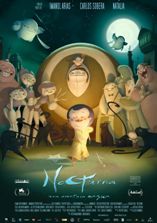 Nuestro ciclo de cine de jóvenes realizadores españoles ha reservado una de sus sesiones a los más pequeños. Mañana sábado, a las 12:15, proyectamos Nocturna, dirigida por Adriá García y Víctor Maldonado.
Nuestro ciclo de cine de jóvenes realizadores españoles ha reservado una de sus sesiones a los más pequeños. Mañana sábado, a las 12:15, proyectamos Nocturna, dirigida por Adriá García y Víctor Maldonado.
Un súbito apagón de estrellas amenaza con dejar la noche sumida en la más profunda oscuridad. Tim, un niño asustadizo que vive en un orfanato, se llenará de valor para resolver este desastre enfrentándose a su propia sombra, fruto de sus miedos. Para conseguirlo se sumergirá en una emocionante aventura a través de Nocturna, un mundo paralelo que surge cada noche cuando nos quedamos dormidos. Allí descubrirá a todos los seres y criaturas que hacen que la noche sea más o menos apacible, y con quienes emprenderá un fabuloso viaje para intentar rescatar a su estrella querida: Adhara.
Our Young Filmmakers Series has one of its sessions dedicated to children. This Saturday morning we will screen at 12:15 pm the film Nocturna by Adriá García and Víctor Maldonado.
In the aging orphanage the days pass very uneventfully, but the nights are something quite different; at least for Tim they are. The light reflected from the stars is the only cure for his fear of the dark. One night this fear leads him to the orphanage rooftop. Where he discovers that his favourite star has disappeared, and unfortunately it’s not going to be the last one. Tim also discovers the Cat Shepherd and his faithful cat Tobermory, that will become Tim’s personal guardians. Tim convinces the Shepherd to take him to see Moka, the guardian of the night, and pleads for him to return the stars to the night sky.
Presentación de libro: Relatos míticos del mundo cotidiano | Book launch: Mythical Tales of the Everyday World
Esta tarde te ofrecemos la presentación del libro Relatos míticos del mundo cotidiano escrito por Mercedes Aguirre. Te esperamos a las 18:00 en el Café Literario. Además se ofrecerá té y café por cortesía del Instituto Cervantes.
Una mujer que ha perdido la memoria y es acusada de haber matado a su propio hijo, un periodista condenado a muerte, una joven que libera represiones e incomodidades por medio del deporte son algunos de los personajes de este libro. Con ellos y con las historias que componen Relatos míticos del mundo cotidiano/Mythical Tales of the Everyday World , Mercedes Aguirre reinterpreta y transforma algunos de los mitos de la antiguedad clásica y los sitúa en la actualidad. Así el mito del dios Dioniso y las Bacantes esta convertido en una historia de suspense en torno a un misterioso crimen o el rapto de Ganimedes en una evocación por parte de un viejo escritor de la influencia que su profesor ejerció sobre él cuando no era más que un muchacho rebelde (en una relación que podría llamarse “de amor y pedagogía”). Por lo tanto, se trata de historias destinadas tanto al lector entendido que conozca las fuentes originales de estos mitos y pueda reconocerlos y seguir la forma en la que han sido interpretados como a cualquier lector de ficción.
La edición bilingüe –que surgió de la colaboración entre la propia autora y el profesor de la Universidad de Bristol Richard Buxton, también especialista en mitología y autor de la traducción al inglés- permite que este libro llegue a un número de lectores más amplio y asimismo sirva como ayuda a la lectura para alumnos de habla inglesa que estén aprendiendo español.
Mercedes Aguirre Castro nació en Madrid. Es profesora de Filología Griega de la Universidad Complutense de Madrid y Visiting Fellow de la Universidad de Bristol. Especialista en mitología pero también enamorada de la literatura, combina lo académico con la ficción, la investigación con la creación literaria. Ha publicado en España (como coautora) una serie de libros Cuentos de la mitología griega inspirados en los mitos clásicos y uno Cuentos de la mitología vasca inspirado en el folklore vasco. Es autora de Nuestros mitos de cada día (que fue finalista del I Premio literario Eride Ediciones) y de la novela El narrador de cuentos.
This evening the book Mythical Tales of the Everyday by Mercedes Aguirre will be launched. The event will be at 6pm at Café Literario. Hot drinks will be served compliment of Instituto Cervantes.
A woman who has lost her memory and is accused of killing her own son, a journalist on death row, a young woman who releases frustrations and nuisances through sport are some of the characters portrayed in this book. With these characters and the stories that make up Relatos míticos del mundo cotidiano/Mythical Tales of the Everyday World , Mercedes Aguirre reinterprets and transforms some of the classical myths and transposes them to the present-day world. In this fashion, the myth of Dyonisus and the Bacchants is turned into a tale of suspense that revolves around a mysterious crime, or the abduction of Ganymede recounts an elderly writer´s reminiscence of his teacher´s influence on him when he was a rebellious youngster (in a relationship that could be labeled as ‘love and pedagogy’). They are therefore tales targeted to both the reader acquainted with these myths original sources, who recognizes them and can follow the author´s interpretation, as well as to any reader of fiction.
The bilingual edition, born from the collaboration between the author and Richard Buxton, professor at the University of Bristol, specialised in mythology and author of the translation into English, allows both to reach a wider audience and to assist English speaking students who are learning Spanish with their reading practise.
Mercedes Aguirre Castro was born in Madrid. She is professor of Greek Philology at the Universidad Complutense in Madrid and Visiting Fellow at the University of Bristol. She is a scholar specialising in Greek mythology but equally enamored with literature, hence her combination of academic work with research and literary creation. In Spain she has co-authored a series of books inspired on Classical mythology (Cuentos de la mitología griega) and one based on Basque folklore (Cuentos de la mitología vasca). She has authored Nuestros mitos de cada día (shortlisted for the inaugural Premio literario Éride Ediciones) and the novel El narrador de cuentos.
